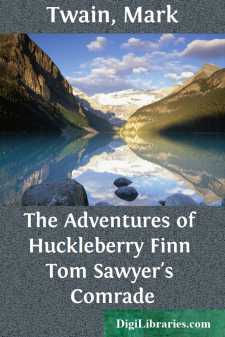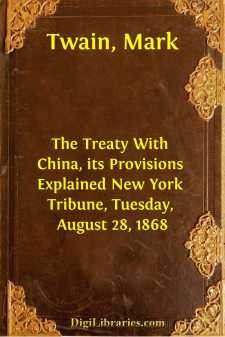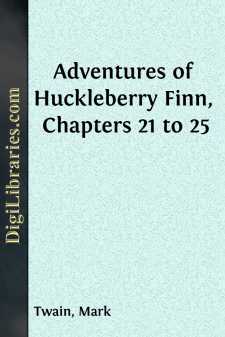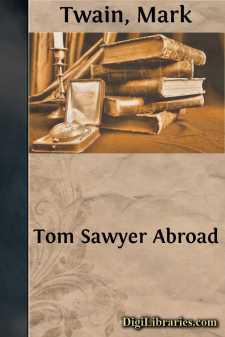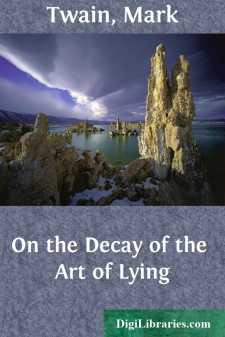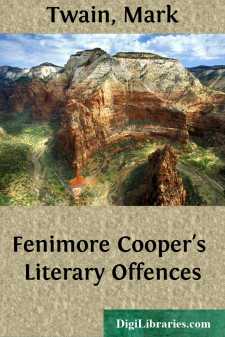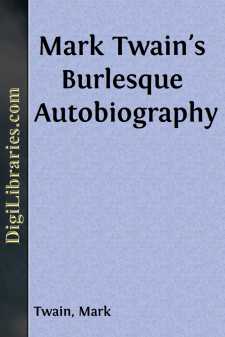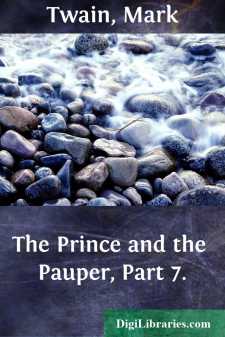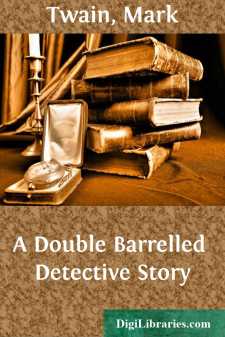Categories
- Antiques & Collectibles 13
- Architecture 36
- Art 48
- Bibles 22
- Biography & Autobiography 813
- Body, Mind & Spirit 142
- Business & Economics 28
- Children's Books 17
- Children's Fiction 14
- Computers 4
- Cooking 94
- Crafts & Hobbies 4
- Drama 346
- Education 46
- Family & Relationships 57
- Fiction 11829
- Games 19
- Gardening 17
- Health & Fitness 34
- History 1377
- House & Home 1
- Humor 147
- Juvenile Fiction 1873
- Juvenile Nonfiction 202
- Language Arts & Disciplines 88
- Law 16
- Literary Collections 686
- Literary Criticism 179
- Mathematics 13
- Medical 41
- Music 40
- Nature 179
- Non-Classifiable 1768
- Performing Arts 7
- Periodicals 1453
- Philosophy 64
- Photography 2
- Poetry 896
- Political Science 203
- Psychology 42
- Reference 154
- Religion 513
- Science 126
- Self-Help 84
- Social Science 81
- Sports & Recreation 34
- Study Aids 3
- Technology & Engineering 59
- Transportation 23
- Travel 463
- True Crime 29
Mark Twain
Mark Twain, born Samuel Langhorne Clemens in 1835, was a prominent American author and humorist known for his sharp wit and keen observations on human nature. He gained fame for his classic novels "The Adventures of Tom Sawyer" and "Adventures of Huckleberry Finn," which are celebrated for their vivid depictions of life along the Mississippi River and their incisive commentary on social issues. Twain's storytelling prowess and his ability to blend humor with critical social commentary have solidified his place as one of the most influential figures in American literature.
Author's Books:
Sort by:
by:
Mark Twain
CHAPTER I You don't know about me without you have read a book by the name of The Adventures of Tom Sawyer; but that ain't no matter. That book was made by Mr. Mark Twain, and he told the truth, mainly. There was things which he stretched, but mainly he told the truth. That is nothing. I never seen anybody but lied one time or another, without it was Aunt Polly, or the widow, or maybe Mary....
more...
by:
Mark Twain
ARTICLE I.His Majesty, the Emperor of China, being of the opinion that in making concessions to the citizens or subjects of foreign Powers of the privilege of residing on certain tracts of land, or resorting to certain waters of that Empire for the purposes of trade, he has by no means relinquished his right of eminent domain or dominion over the said land and waters, hereby agrees that no such...
more...
by:
Mark Twain
CHAPTER XXI. IT was after sun-up now, but we went right on and didn't tie up. The king and the duke turned out by and by looking pretty rusty; but after they'd jumped overboard and took a swim it chippered them up a good deal. After breakfast the king he took a seat on the corner of the raft, and pulled off his boots and rolled up his britches, and let his legs dangle in the water, so as to...
more...
by:
Mark Twain
CHAPTER I. TOM SEEKS NEW ADVENTURES DO you reckon Tom Sawyer was satisfied after all them adventures? I mean the adventures we had down the river, and the time we set the darky Jim free and Tom got shot in the leg. No, he wasn't. It only just p'isoned him for more. That was all the effect it had. You see, when we three came back up the river in glory, as you may say, from that long travel,...
more...
by:
Mark Twain
Observe, I do not mean to suggest that the custom of lying has suffered any decay or interruption—no, for the Lie, as a Virtue, A Principle, is eternal; the Lie, as a recreation, a solace, a refuge in time of need, the fourth Grace, the tenth Muse, man's best and surest friend, is immortal, and cannot perish from the earth while this club remains. My complaint simply concerns the decay of the...
more...
by:
Mark Twain
It seems to me that it was far from right for the Professor of English Literature in Yale, the Professor of English Literature in Columbia, and Wilkie Collins to deliver opinions on Cooper's literature without having read some of it. It would have been much more decorous to keep silent and let persons talk who have read Cooper. Cooper's art has some defects. In one place in...
more...
by:
Mark Twain
BURLESQUE AUTOBIOGRAPHY. Two or three persons having at different times intimated that if I would write an autobiography they would read it, when they got leisure, I yield at last to this frenzied public demand, and herewith tender my history: Ours is a noble old house, and stretches a long way back into antiquity. The earliest ancestor the Twains have any record of was a friend of the family by the...
more...
by:
Mark Twain
Chapter XXII. A victim of treachery. Once more 'King Foo-foo the First' was roving with the tramps and outlaws, a butt for their coarse jests and dull-witted railleries, and sometimes the victim of small spitefulness at the hands of Canty and Hugo when the Ruffler's back was turned. None but Canty and Hugo really disliked him. Some of the others liked him, and all admired his pluck...
more...
by:
Mark Twain
A man who is not born with the novel-writing gift has a troublesome time of it when he tries to build a novel. I know this from experience. He has no clear idea of his story; in fact he has no story. He merely has some people in his mind, and an incident or two, also a locality. He knows these people, he knows the selected locality, and he trusts that he can plunge those people into those incidents...
more...
by:
Mark Twain
PART I "We ought never to do wrong when people are looking." I The first scene is in the country, in Virginia; the time, 1880. There has been a wedding, between a handsome young man of slender means and a rich young girl—a case of love at first sight and a precipitate marriage; a marriage bitterly opposed by the girl's widowed father. Jacob Fuller, the bridegroom, is twenty-six years...
more...


